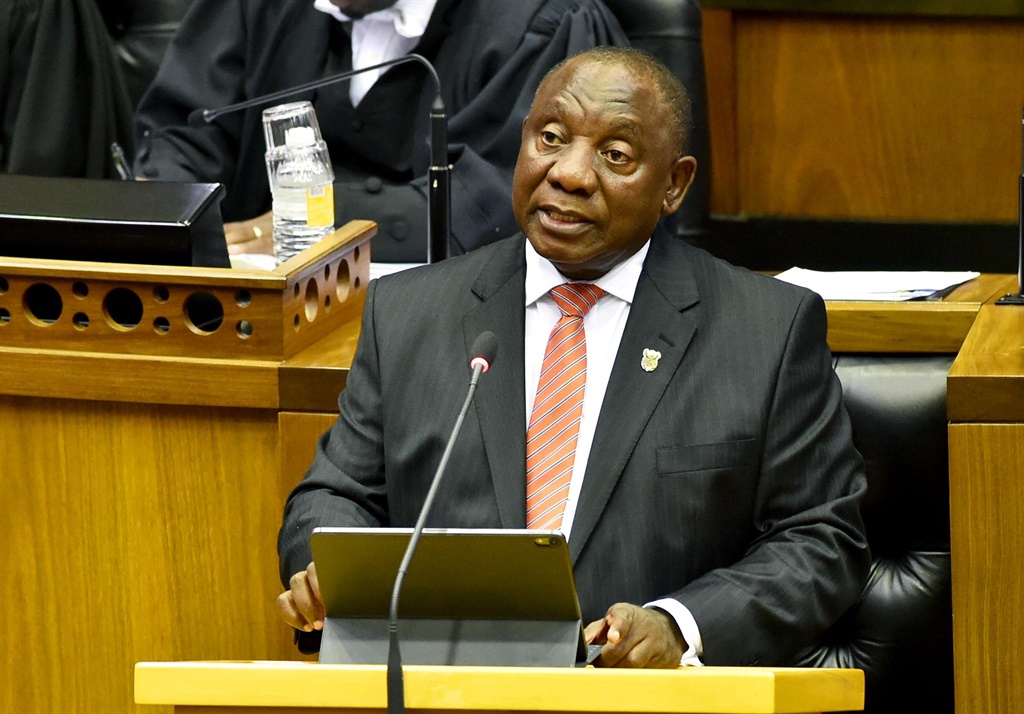
- President Cyril Ramaphosa the poultry master plan helped the industry has invested R800 million to upgrade production.
- Finance Minister Tito Mboweni said the Department of Small Business Development allocated R4 billion over the medium term to township and rural business.
- Government hopes the Economic Recovery and Reconstruction Plan expands South Africa's economy and return R200 billion to the country's annual output.
Government officials and partners said during a webinar on Friday afternoon that one of President Cyril Ramaphosa's industrial master plans was already gathering steam, with small, medium and micro-enterprises (SMMEs) in the poultry industry receiving support.
The poultry master plan is one of multiple master plans announced by Ramaphosa during his State of The Nation Addressed (SONA) aimed at supporting local businesses in line with his Economic Reconstruction and Recovery Plan tabled in October, which seeks to guide South Africa towards economic recovery.
The advent of the Covid-19 pandemic and the national lockdown aimed at curbing the spread of the virus last year devastated the South African economy and prompted unemployment numbers to surge with little sign of apparent recovery in sight.
During his SONA earlier this month, Ramaphosa said four master plans were completed and signed as part of the social compact between labour, business, government and communities - one of them aimed at boosting the poultry industry.
"Through the implementation of the poultry master plan, the industry has invested R800 million to upgrade production. South Africa now produces an additional one million chickens every week," said Ramaphosa.
Two weeks later, Finance Minister Tito Mboweni told Parliament during his Budget speech that making business easier for businesses was key to positioning the South African economy for recovery in the year ahead.
"The Department of Small Business Development has allocated R4 billion over the medium term to township and rural enterprises, including blended finance initiatives," said Mboweni.
Among other things, Ramaphosa said a major localisation drive, in line with his Economic Recovery and Reconstruction Plan of last year, could expand South Africa's productive economy and return over R200 billion to the country's annual output.
On Friday, acting director general of intergovernmental coordination and stakeholder management at the Government Communication and Information System Michael Currin said the poultry master plan was the culmination of the SONA's pledges and the Budget's commitments.
Home-grown solution
"Mboweni said there are reasons for hope. He presented a national budget that gives expression to the [SONA] and stressed the reasons for hope. This emphasises that hope, and the master plan is a home-grown solution between business, labour government and communities," said Currin.
General manager of the South African Poultry Association, Izaak Breitenbach, said the association was working to support entry-level and small businesses in the industry to get expertise and support.
Breitenbach used Zapa Farm Fresh, mentioned by Trade and Industry Minister Ebrahim Patel during the SONA debate last week, as an example. He said Zapa Farm benefitted from the assistance of state-owned structures in establishing a poultry farm that produces eggs and plans to eventually enter the broiler growing industry.
"There is more to this than just identifying and financing a farm. We need production protocols, finances and a market when we do farms like this. Farms not only consist of chickens [and] egg-laying. Beverly of Zapa Farms was the one who took initiative and it resulted in something wonderful," said Breitenbach.
Breitenbach said the provision the master plan offers to businesses is beyond financial support. He said another entrepreneur in the space, Thokozani Sibeko, delivered his own brand of chicken eggs on his motorbike which he purchased through crowdfunding and was trained on how to upscale his hatchery.
"I hear from most farmers want to be contract growers. We gave Sibeko no funding, but we shared ideas with him, and he went and implemented them. Thokozani wanted expertise in growing his business and is a second-year student who started his business in his mother's garage," said Breitenbach.
- READ | BUDGET | Plenty of 'welcome' surprises but did Mboweni dig himself a hole with social grants?
He said another entrepreneur, Clive Tegere, wanted to get into the sector after his father had 3 000 chickens. He said Tegere built a business that allowed him to hatch 7 000 chickens per week and Countrybird Holdings supplied him with fertile eggs and agreed to buy back some chickens from him, allowing him to expand his hatchery to 28 000 chicks per week.
"You will have a wholesaler who buys all their chickens from Brazil and other items from other countries, but they all come to him in one truck. Poultry Masterplan, in partnership with the Consumer Goods Council, is working to ensure retailers purchase a certain amount of their eggs from SMMEs," Breitenbach said.
Administrative clerk for compliance at the Broad-based Black Economic Empowerment (B-BBEE) Commission Lesetja Mashao reminded attendants at the webinar that government would prioritise B-BBEE-compliant businesses in the poultry sector.
"Businesses can be developed by entities through enterprise development. Enterprises in rural areas can also be developed through support and funding. If one wants to render services to organs or the state or gain optimum benefit from state support, they must be BEE-compliant," said Mashao.
Tshegofatso Modubu said the poultry market is an easy sector to get into and is a very easy market in which to be BEE-complaint. He added that young people are not just rearing chickens, but were also involved in incubating in the industry.
Chairperson of the Egg Organisation, Willie Bosoga, said egg demand during the Covid-19 lockdown period was stronger than previous years during those comparative months, but said this was primarily due to the upswing in home baking and family breakfasts.
Bosoga said it was important to remember that there was and is no interruption in the production levels of eggs during the pandemic as eggs remain one of the lowest-cost forms of protein, as well as eggs' versatility the preparation of multiple food dishes.




 Publications
Publications
 Partners
Partners












